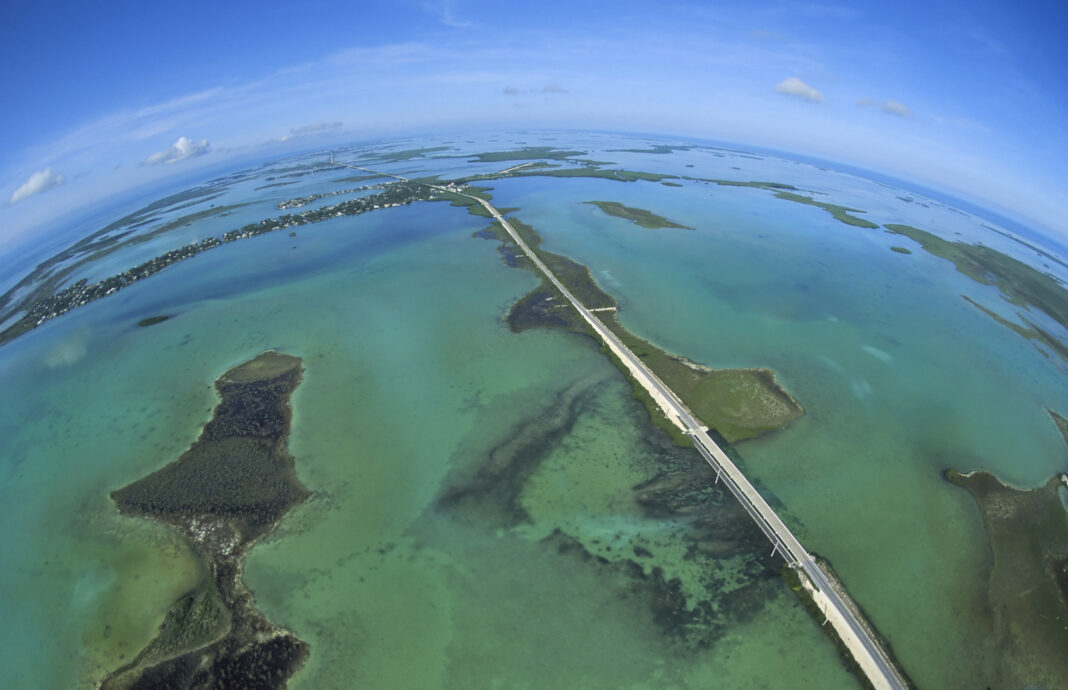County commissioners are considering a big change to the way Monroe County governs itself. The five elected officials on May 17 started the conversation about converting Monroe County to a charter county (as opposed to its current status as a non-charter county).
The decision ultimately will rest with the voters, who have to approve any proposed charter decision and governing document.
There are pros and cons to the change.
First, the good news…
The switch to a charter-style of government would enable Monroe County to levy a transportation surtax (as long as that tax is also approved by the voters) to fund pricey transportation and infrastructure projects for roadways and bridges.
Non-charter counties have to get state legislative permission to levy such a tax, and for the past several years, the state repeatedly has shot down Monroe County’s requests for it.
“We’ve identified a funding need and this charter county surtax would address those needs, but only if we’re a charter county,” County Attorney Bob Shillinger told the commissioners. “It’s a reversible decision if you just want to start exploring it.”
Experience has shown that roughly 2/3 of sales tax collected in the Florida Keys is paid by visitors, so the transportation surtax would be expected to shift the majority of the cost of the transportation and transit improvements from local taxpayers to visitors, county spokesperson Kristen Livengood wrote in a summary of the charter county discussion.
Now for the bad news…
Charters in other counties allow county rules to preempt city rules, meaning the cities of Key West, Marathon, Key Colony Beach, The Village of Islamorada and Layton would lose their autonomy and be subject to the power of the county.
The five seated county commissioners emphasized on May 17 that they have absolutely no desire to interfere in the operations of the municipalities in Monroe County and directed Shillinger to begin drafting a charter document that preserves municipal independence.
“Don’t even bring that up,” Commissioner Michelle Lincoln told Shillinger during the discussion. “We don’t need a bunch of emails from the municipalities thinking we’re trying to do a power grab.”
Discussions are still in the very preliminary stages and any charter will have to be approved by Monroe County voters, along with any transportation surtax that is levied under the charter.
Four of the five commissioners said they are preliminary on board with the switch to a charter county. But County Mayor Craig Cates has concerns.
We may say we don’t want to preempt city rules and laws, but we’re not always going to be on the commission dais forever, Cates told the Keys Weekly on May 18, acknowledging that voters would have to approve any changes to a charter document.
“But what if down the road one section of the Keys gets upset with one of the cities, and voters in that area will come out to approve a charter change,” he said. “Look how it is with the state legislators getting upset with federal interference, and county officials getting upset with state interference. Now we could have city officials getting upset with county interference and preemption. I just have some concerns, and I don’t blame others in the cities that have the same concerns.”
A little background…
“Charters are formal written documents that confer powers, duties, or privileges on the county. They resemble state or federal constitutions and they must be approved, along with any amendments, by the voters of a county,” according to the Florida Association of Counties.
“According to several Florida constitutional scholars, the establishment of charter government was designed to remove the resolution of local problems from the state legislature’s busy agenda and to grant the county electorate greater control over their regional affairs.
“To date, there are 20 charter counties in Florida. Collectively these counties are home to more than 75% of Florida’s residents,” the association states.
























